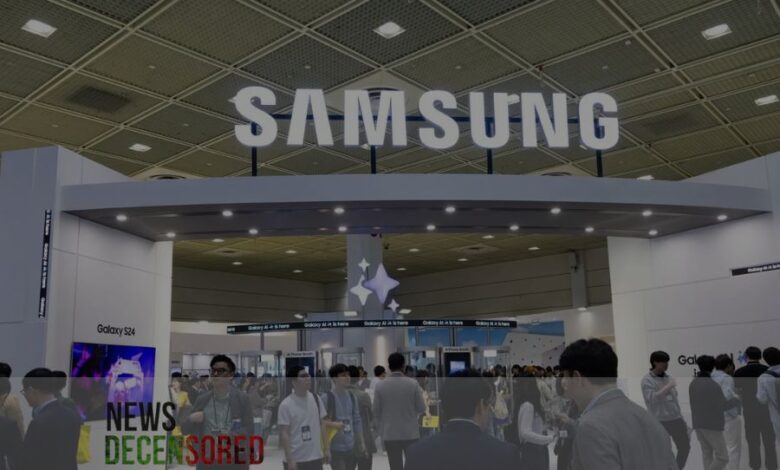Samsung Profits Surge: Capitalizing on AI and Battling for Chip Supremacy

Samsung Electronics is experiencing a significant financial resurgence, fueled by a booming demand for artificial intelligence (AI) technology. The world’s largest memory chip maker reported a staggering over 10-fold increase in first-quarter operating profit compared to last year. This positive outlook sent their shares soaring 1.8% on Tuesday.
However, despite this financial success, Samsung’s stock price remains slightly down for the year. This lag is partially attributed to their ongoing efforts to catch up with their smaller competitor, SK Hynix, in supplying high-end memory chips like High Bandwidth Memory (HBM) – a crucial component for AI hardware.
Samsung is actively addressing this gap by ramping up production. They announced plans to triple their HBM-related chip supply in 2024 compared to the previous year. This includes the recent mass production launch of their latest HBM chips – the 8-layer HBM3E – designed explicitly for next-generation AI chipsets.
While SK Hynix was previously the sole supplier of HBM3 chips to AI leader Nvidia, Samsung aims to capitalize on this growing market share. They plan to introduce a 12-layer version of their HBM chip later this quarter, further expanding their offerings. Analysts believe this aggressive strategy positions Samsung as a major player in the high-end chip market, potentially supplying Nvidia and AMD (another leading AI hardware manufacturer).
Samsung isn’t solely focusing on HBM chips. They also plan to increase their production of high-end solid-state drives (SSDs) to meet the growing demand for AI servers. This move echoes similar strategies recently announced by SK Hynix, suggesting a potential industry-wide shift towards prioritizing chip production for AI applications.
Beyond the chip market, Samsung’s overall first-quarter performance was impressive. Their total revenue rose 13% to a whopping $52.14 billion, with memory chip revenue alone experiencing a 96% increase to $17.49 billion. This significant rise can be attributed, in part, to the surge in AI development.
While experiencing a slight year-over-year decline in operating profit, Samsung’s mobile devices business managed to reclaim the title of the world’s top smartphone vendor from Apple. This shift reflects their consistent shipment numbers (around 60 million smartphones in the quarter) and Apple’s recent sales slump in China.
Despite launching their flagship Galaxy S24 smartphones during the quarter, rising production costs – fueled by increased memory chip prices – impacted profit margins. However, Samsung reports that AI features drive sales for the S24, with roughly half of customers citing such features as a central purchasing factor. Additionally, 60% of S24 users actively utilize these AI functions, suggesting a growing consumer demand for such technology.
In conclusion, Samsung’s first quarter of 2024 paints a picture of a company strategically capitalizing on the burgeoning AI market. By ramping up the production of high-end chips specifically designed for AI applications and prioritizing their mobile devices’ AI functionalities, Samsung is poised to maintain its position as a leader in the technological landscape.
However, their aggressive pursuit of dominance in the AI chip market will be met with fierce competition from established players like SK Hynix. Only time will tell how this battle for market share unfolds and how it impacts the future of AI hardware development.




